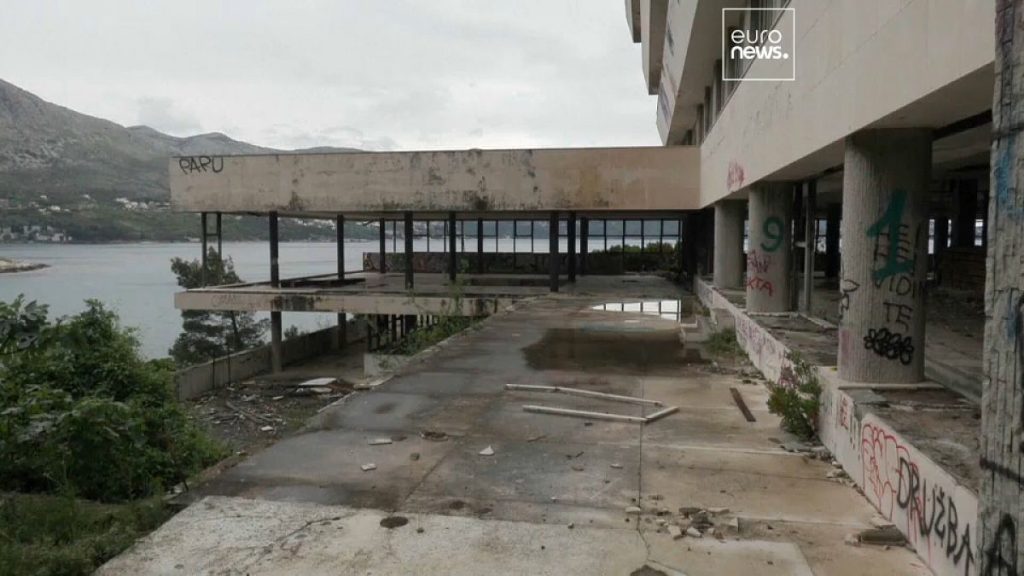Kupari, a holiday resort in the former Yugoslavia, was once an iconic destination known for its modernist architecture and beautiful beach. Built by the Yugoslav armed forces to provide a holiday playground for military members, the highlight of the complex was the Hotel Pelegrin, designed by a young architect named David Finci. The resort eventually grew to accommodate 1,600 holidaymakers and 4,000 campsite guests. The resort began to decline in the 1990s due to neglect and was further damaged during the Yugoslav Wars.
The downfall of Kupari was not solely due to the war, according to experts. The lack of maintenance, neglect, and loss of its previous appeal played a significant role in the resort’s decay. Despite its past glory, Kupari holds memories for many locals who spent their childhood enjoying the resort’s sports facilities. However, in the 1990s, the resort was looted, shelled, and burned by Yugoslav forces during the breakup of Yugoslavia, leading to further deterioration.
In recent years, efforts have been made to restore Kupari to its former glory. The Croatian military, which inherited the resort after the war, was unable to redevelop it successfully. However, a new redevelopment project backed by a Russian billionaire and taken over by a Singapore-based hotel company aims to reconstruct and reopen a new resort by 2025. Despite being left abandoned for two decades, the site is now a shell of its former self, visited by locals and foreign tourists alike who are intrigued by its history and urban decay.
The iconic Hotel Pelegrin, with its futuristic facade and stone-veneered balconies overlooking the Adriatic Sea, remains a symbol of Kupari’s past grandeur. Architectural historian Boris Vidakovic emphasizes the importance of the resort in the architectural landscape and its influence on coastal projects at the time of its construction. The resort’s unique architecture and cultural significance have made it a popular destination for photographers and filmmakers seeking to capture its post-apocalyptic charm against the backdrop of the Adriatic Sea.
The restoration of Kupari highlights the potential for reviving forgotten landmarks and preserving cultural heritage. The new resort project aims to breathe new life into the decaying buildings and bring back the vibrant atmosphere that once characterized Kupari. With plans to reconstruct and open a luxury resort by 2025, the project represents a new chapter in the history of Kupari, providing hope for its resurgence as a premier holiday destination in the Adriatic region. Despite its turbulent past, Kupari’s legacy lives on in the memories of those who experienced its glory days and the new generation of visitors who are drawn to its unique charm and history.


